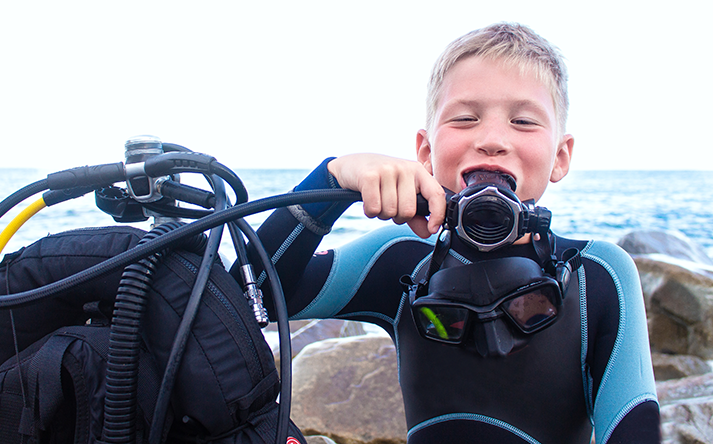RAID MEMBERS MUST HAVE A POLICY IN PLACE TO TEACH CADET AND JUNIOR PROGRAMS
There is little that’s more satisfying or more fun than introducing youngsters to SCUBA and Freediving. Kids have a level of curiosity and sense of adventure that makes being in the water a perfect fit for them. Young divers tend to connect with the fun immediately and, for some, learning about the underwater realm opens up a lifelong bond that never washes away. So, signing up cadet and junior divers is a thrill for them and for RAID dive pros.
However, when teaching minors (youths under the age of 18), there are a few special checks and balances that must be in place.
The RAID General Diving Standards (download the RGDS from your member profile) makes the agency’s policy clear. It contains our ” YOUTH CODE OF PRACTICE, which is based on the relevant ISO guidelines.
- Look after the child’s health, safety and welfare.
- Ensure appropriate supervision during all instructional activities.
- Whenever possible, meet the child’s parents or guardians and share program goals and objectives.
- Strive to keep parents or guardians involved and informed through verbal reports and updates as often as possible.
- Treat children, parents or guardians with respect regardless of age, race, gender and religious affiliation.
- Honor commitments made to children.
- Discuss disciplinary problems with parents or guardians.
- Do not engage in inappropriate contact with children.
- Respect a child’s rights to privacy and intrude only when health and safety demand.
- Whenever possible, ensure two adults are with children at all times.
- In all activities follow local, district, federal codes relating to working with minors.
These vary from jurisdiction to jurisdiction but most follow a similar format.
If you have further questions about what you must do to safeguard kids and young adults in your local region, please contact your RAID Regional Office.

